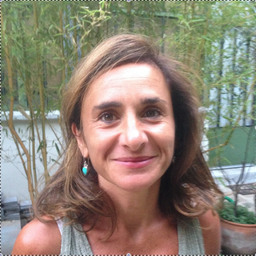
Valentina Vapnarsky has directed a number of international projects, edited books/special issues and published numerous articles on these topics. She is director of the Centre de Recherche et Enseignement en Ethnologie Amérindienne (EREA) of the LESC (CNRS & UPO) and currently teaches at the University of Paris Ouest and at the INALCO (Paris).
Sessions in which Dr Valentina Vapnarsky participates
Saturday 4 June, 2016
Heritagization (the various means by which cultural features—either material or immaterial—are turned into a people’s heritage) has recently become, for Amerindian groups, a major means to gain visibility and recognition in the new Latin American social and political landscapes where cultural diversity is endowed with an increasingly critical role. Different forms of cultural heritagization have largely been studied elsewhere, particularly in North America. However, they are far less known in...
Sunday 5 June, 2016
Heritagization (the various means by which cultural features—either material or immaterial—are turned into a people’s heritage) has recently become, for Amerindian groups, a major means to gain visibility and recognition in the new Latin American social and political landscapes where cultural diversity is endowed with an increasingly critical role. Different forms of cultural heritagization have largely been studied elsewhere, particularly in North America. However, they are far less known in...
Sessions in which Dr Valentina Vapnarsky attends
Friday 3 June, 2016
Welcome addresses and cocktail, followed by the Concordia Signature Event "The Garden of the Grey Nuns". As the opening ceremony and cocktail take place in the former Grey Nuns' Motherhouse, recycled into campus residence and reading rooms by Concordia University, delegates will also have the possibility to discover the video Three Grey Nuns (3 minutes, by Ron Rudin and Phil Lichti. Three Grey Nuns recount their memories of communal life in the Grey Nun’s Motherhouse. Built...
Saturday 4 June, 2016
What if we changed our views on heritage? And if heritage has already changed? While, on the global scene, states maintain their leading role in the mobilization of social and territorial histories, on the local scale, regions, neighbourhoods and parishes have changed. Citizens and communities too: they latch on to heritage to express an unprecedented range of belongings that no law seems to be able to take measures to contain, often to the discontent of...
Most of what we experience as heritage emerges into conscious recognition through a complex mixture of political and ideological filters, including nationalism. In these processes, through a variety of devices (museums, scholarly research, consumer reproduction, etc.), dualistic classifications articulate a powerful hierarchy of value and significance. In particular, the tangible-intangible pair, given legitimacy by such international bodies as UNESCO, reproduces a selective ordering of cul...
Sunday 5 June, 2016
In English and French The two Inuit artists Nina Segalowitz and Taqralik Partridge are offering us an initiation to katajjaniq, this thousand years old autochthonous expression of overtone singing which consists of an alternate dialogue of inhaled and exhaled guttural and vocal sounds. Throat singing is practiced just like a game: two women facing and challenging one another until one of them either laughs or runs out of breath. (Meeting point: DS Registration table) _...




